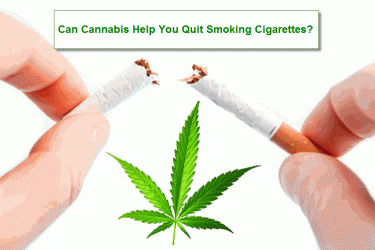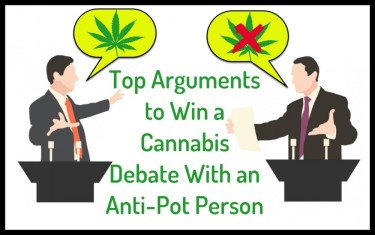Cannabis News
Are Americans Shifting to Cannabis and Saying Goodbye to Cigarettes for Good?
Published
23 hours agoon
By
admin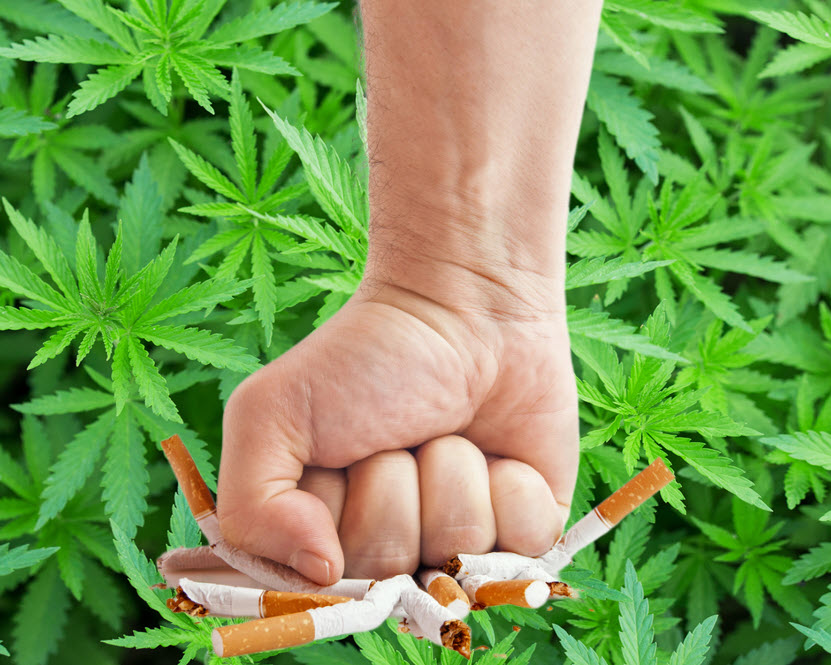
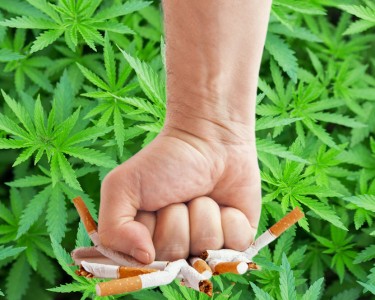
Are Americans Shifting To Weed And Saying Goodbye To Cigarettes?
We live in a time when people are more health-conscious than ever.
For the first time in history, we’re seeing a downward trend in the consumption of cigarettes, especially among young adults and adolescents. Just a few decades ago, cigarettes were considered ‘cool’. The link between cancer and cigarettes were established by the 1950’s, though accepting that cigarette smoking was “bad” for you didn’t take root socially until around the late 1990’s.
Now, we know that cigarette smoking is a dangerous, often fatal habit that leads to cancer, respiratory illnesses, and heart disease. According to the World Health Organization (WHO), over 8 million people die prematurely from tobacco use yearly.
In the results of a Gallup poll from early 2024, they found that more Americans are more likely to smoke weed than cigarettes, while young people are more than 5 times more likely to choose weed over tobacco. The poll found that 17% of Americans smoke weed, while 12% admitted to smoking cigarettes in the previous week. The more dramatic difference was observed among the 18-34 age range, where 26% admitted to consuming weed while only 5% of them still smoke cigarettes.
For the same poll, they also found that the older adults aged 55 and up were more likely to still smoke cigarettes compared to marijuana. “Americans’ reported marijuana smoking has more than doubled since 2013, when Gallup first added the question in its annual Consumption Habits survey,” explained Gallup. “That year, seven percent said they did,” they reported.
Improved Public Perceptions Leads To Healthier Choices
One can’t deny that there has been a massive shift in the increasing awareness of marijuana’s health benefits, as well as the dangers of cigarette smoking. This leads to changing public perceptions, better and more scientific research as well as clinical studies, and an improvement in the law.
The law, specifically, has been instrumental in mitigating the spread of cigarette use. For example, many governments worldwide have established strict no-smoking policies and placed a massive tax on cigarettes. Tobacco manufacturers are no longer allowed to freely advertise their product. All these have led to a downward trend in cigarette smoking habits and purchasing.
The proliferation of legal cannabis throughout North America, not just for medical use but also for recreational use has also contributed to a widespread cultural acceptance of cannabis, which has also improved the public perception of the drug. As we speak, it’s already become a part of society not just in North America but also in countries such as Thailand, several European nations, Uruguay, and Mexico to name a few.
In addition, people are also becoming more educated about the use of alcohol. While it may still be the most widely used intoxicant, its days me be numbered: there is a small yet growing number of people who are choosing to replace alcohol with weed, because of the sheer number of studies proving the dangerous link between fatal illnesses and alcohol. Not to mention that alcohol is linked to drunk driving and road fatalities, multiple different types of cancers, horrible hangovers, and so much more.
Even Gallup polls from as far back as 2022 revealed that people in the United States have already begun to smoke more weed than cigarettes. Gallup conducted the survey from July 5 through 26 of 2022. The results reveal that 11% of the population smoke cigarettes, while back in the mid-1950’s, 45% of Americans smoked them. Meanwhile, 16% of Americans reported that they smoke weed, and 48% tried it in the past. Back in 1969, just 4% of Americans smoked weed!
It’s clear that societal and cultural perceptions around both have changed dramatically. “Smoking cigarettes is on the decline and is most likely to become even more of a rarity in the years ahead,” explains Gallup Senior Scientist Dr. Frank Newport. “This reflects both public awareness of its negative effects and continuing government efforts at all levels to curtail its use,” he said.
Unfortunately, the Gallup poll also found that alcohol remains a popular substance for Americans. Despite the increasing studies being published right now that alcohol is a proven carcinogen, one can’t blame the population: it’s legal, easily accessible, and affordable for many.
Overall, it seems that the demand for wellness is slowly taking over. Wellness is no longer just a buzzword or a trend; it’s a real pursuit that more, especially young people, are seeking. And cannabis fits very well into that picture: whether CBD or THC, the components of marijuana have proven beneficial for the mental and physical health of people, across a wide age group. From pediatric CBD applications to therapeutic uses for the elderly, cannabis can be beneficial for many people.
It’s so easy to see why thousands of young adults commonly include cannabis as part of their everyday wellness regimen – the same generation that have shunned cigarette smoking for good.
Conclusion
If you really must have a smoking habit, choose weed over cigarettes. Even then, any type of weed is much healthier than tobacco. Marijuana is so much healthier for your mind and body, and it can function as a medicine and supplement as well.
For individuals who are struggling to quit smoking cigarettes, you might even want to consider using cannabis as a cessation aid. Many have found success using cannabis to quit cigarettes, with longer-lasting success rates.
CAN CANNABIS HELP YOU QUIT CIGARETTES? READ BELOW…
You may like
-


Colorado shut out of marijuana rescheduling hearings by ‘biased’ DEA, filing alleges
-


Karma Koala Podcast 218: Bethany Niebauer Axia Resolutions (CO) – Cannabis Mediation As The Sector Matures
-
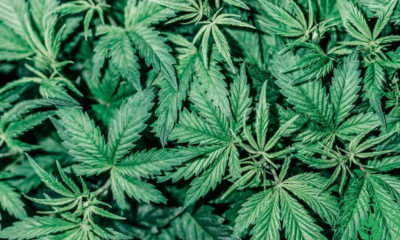

Puerto Rico Marijuana Jobs and Cannabis Careers
-


How to Become a Budtender in Pennsylvania
-


5 Marijuana-Infused Food Recipes You Can Make at Home
-
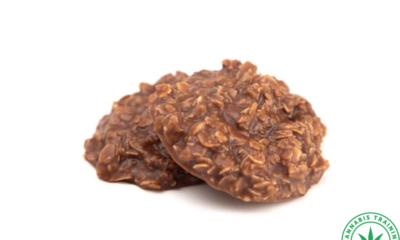

How to Make No Bake Edibles With Cannabutter: Easy Recipes
Cannabis News
Maintaining The Highest Level of Quality and Freshness for THCa Products
Published
21 hours agoon
January 7, 2025By
admin
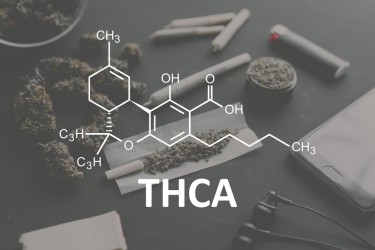
When looking for food, the freshness and quality of the product are essential to the customer. Care must be taken with every product to keep its original qualities. This makes sure that customers have the best experience possible with every buy. Brands ensure their products stay potent and fresh, so to maintain they put them in airtight containers. This gives customers a premium experience that stands out in the market even if they are bought from thca flower clearance. This is especially important when it comes to cannabis goods. Keeping THC-rich flowers fresh ensures every person has a good experience that meets their needs.
The practice of storing things in air-tight containers is very helpful for maintaining their quality. These containers help keep out air, light, and wetness, which can all make the product fresh and effective over time. For people who use cannabis, how fresh the product is can have a big effect on how strong and how long the benefits last. When THC flowers are stored properly, users can expect a better experience that keeps all of the product’s benefits.
The chemicals that give weed its unique tastes and smells, don’t break down when it is stored in an airtight container. Terpenes are very important for improving the taste and making each type unique. The natural qualities of these terpenes can be kept safe by storing them in the right way. This way, every user can enjoy the full range of tastes and smells that the product has to offer.
Why airtight containers are important
Containers that don’t let air in are not only useful, they are necessary for storing things. Over the time, oxygen can break down the product’s cannabinoids and oils. When you use airtight cases, the product stays protected from the outside world. This keeps its chemical structure and makes sure it stays strong.
The users will trust the products only if they feel good about quality. Whether they are used for fun or medical reasons, THC flowers if not stored correctly may have less effect, giving a bad experience for users. To keep the level of quality, it is important to spend money on good storage methods like using airtight containers.
Make sure you have a great time
When a product has been carefully stored in the best possible ways, the experience is more powerful. Whether you are buying flowers to help you feel better or just for fun, they should always be live. With this care, users can get a product that works well like they bought the day it was packaged.
Freshness is at the heart of this process. By making sure that goods are kept in containers that keep air out, businesses can keep up the quality of the goods and make sure that customers can get the best items. Customers are happier and more likely to trust the brand to always provide better goods.
In the end, keeping the product fresh and high-quality isn’t just about keeping it safe, it is also about giving the customer a regular, good experience. Making sure that a product stays fresh and effective from the time it is packed until it gets to the customer is very important. One easy and very effective way to reach this goal is to store things in containers that keep air out. Looking at good storage methods will continue to be important for keeping the quality of THC products even as the cannabis business grows. Customers can be sure that this way of keeping things fresh and effective will make their experience better, whether they are looking for new types or taking advantage of thca flower clearance deals.
Cannabis News
Cannabis Code Enforcement Fines Must be Remedial, Not Punitive, Federal Court of Appeal Holds
Published
22 hours agoon
January 7, 2025By
admin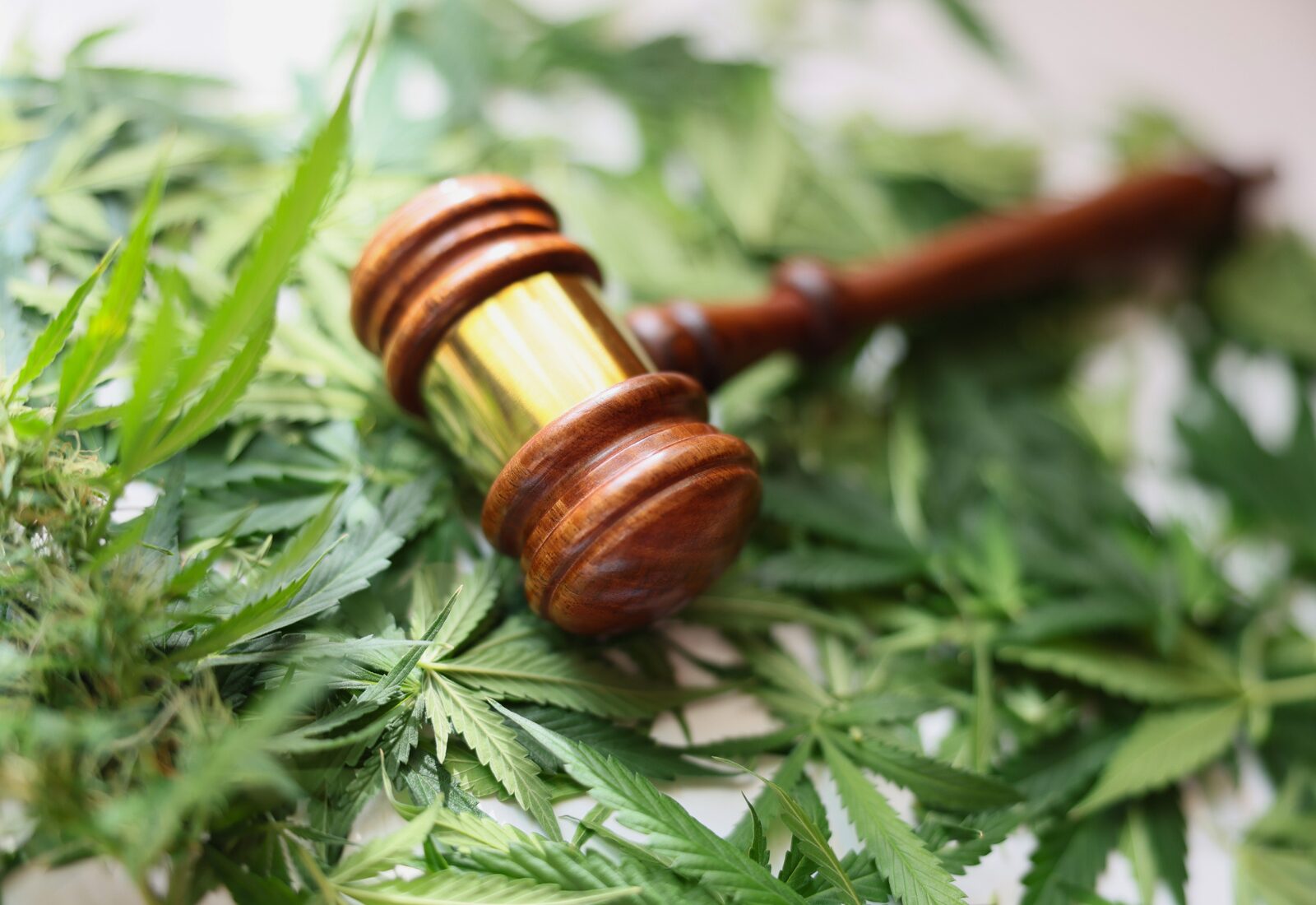
The Ninth Circuit Court of Appeal has reinstated a civil rights lawsuit against Humboldt County, California, that challenges the county’s practices in imposing punitive daily fines. It is the first time a federal appellate court has weighed in on local government’s enforcement of code violations involving cannabis farms.
The Court of Appeal decision
The decision, in Thomas v. County of Humboldt, comes after years of complaints by cannabis cultivators that local governments impose unfair fines for technical violations at licensed farms. That counties and municipalities have adopted and are enforcing large fines involving licensed properties is one of many reasons why increasing numbers of farms have given up their licenses and shut down completely or returned to the illicit market. This is hurting state efforts to bolster the legal market and suppress the illicit market for cannabis.
Lessons for industry and regulators
A takeaway from the decision is that local governments need to keep the goal of remediation in mind in establishing penalties, must be more reasonable in allowing cultivators to fix violations, and more flexible in decisions to impose fines and settling disputes. The decision should motivate county and city attorneys, and cannabis licensees and applicants, seek assistance from a mediator with expertise in the cannabis market and regulation. The courthouse might not now be as friendly a venue for local government as it has been in the past.
Most cannabis businesses that run afoul of local codes pay the penalties, no matter how unfair they might seem, because they can’t afford a long legal battle and the administrative and court processes are tilted against the property owner. Administrative hearing officers routinely uphold notices of violations and the penalties imposed by code enforcement officers. Writs of mandate brought against local government in state court, particularly in smaller counties, are extremely difficult to win.
Background on the Thomas case
What has made the Thomas case viable is that several plaintiffs banded together in a civil rights class action in federal court under 42 U.S.C. § 1983, alleging that Humboldt County’s penalties for cannabis abatement violate the Eighth Amendment’s Excessive Fines Clause.
Humboldt County established a schedule of daily fines for illegal cannabis cultivation of up to $10,000, with a minimum of $6,000. Upon receiving a notice of violation from the county, the party has 10 days to abate all violations, subject to an appeals process, during which penalties continue to accrue. Violations included not just the illegal cultivation of cannabis itself, but also any other violation that facilitates illegal cultivation of cannabis. The Thomas plaintiffs contended that the county issues violation notices with hefty fines based on imprecise data (such as satellite and drone photos) and for code violations that originated with previous property owners.
The lower District Court dismissed the lawsuit on the basis that the plaintiffs lack legal standing, because they had not, at the time of suit, paid any penalties. But the Ninth Circuit held that the plaintiffs had concrete injuries, providing standing, because they suffered emotional distress and had incurred expenses with engineers and attorneys as they attempted to abate the alleged violations and defended themselves in hearings.
Getting to the merits of the lawsuit, the Ninth Circuit held that the plaintiffs had plausible claims under the Excessive Fines Clause because the penalties were punitive, not remedial. The Ninth Circuit agreed with the plaintiffs that the fines were unconstitutionally excessive because (1) the notices were vague, often inaccurate, or involved violations that pre-dated the plaintiffs’ occupation of their properties; (2) lesser penalties could accomplish the same health and safety goals; and (3) the alleged offenses caused no harm beyond a technical lack of compliance with the county’s permitting regulations.
Humboldt provides for an administrative appeal before a hearing officer who determines whether a violation has occurred or continues to exist. The hearing officer can only reduce the penalty for a violation in limited circumstances and cannot reduce it to less than $6,000 per day. Although the Ninth Circuit did not explicitly address it in the Thomas decision, a property owner in most circumstances also can be forced to pay the county or municipality’s abatement costs and legal expenses — including those incurred in a subsequent writ of mandate proceeding in state court. The Ninth Circuit agreed that the Thomas plaintiffs had come under:
“immense pressure to settle due to the County’s issuance of ruinous fines, . . . its undue delay in providing hearings, its denial of permits while abatements are pending, and the cost the County imposes to prove one’s innocence.”
The Ninth Circuit found that Humboldt County’s fines were “clearly punitive, not remedial as argued by the County.” The fines could reach millions of dollars, and, in the case of one plaintiff, the fines dwarfed the value of her property. The appellate court was untroubled by the involvement of cannabis, which remains unlawful under the federal Controlled Substances Act:
“[I]t seems clear to us that lesser penalties could accomplish the same health and safety goals,” and “the offenses here have caused no harm beyond a technical lack of compliance with the County’s cannabis permitting regulations.”
The Thomas plaintiffs’ strategy pays off
The Thomas plaintiffs’ strategy of going to federal court was fraught, because the court could have just as easily declined to hear the matter under the illegality doctrine, but it paid off here; the Ninth Circuit not only considered the case but also disregarded the problem of whether the plaintiffs were entitled to any remedy under federal law.
The Ninth Circuit concluded by acknowledging that local government is “often at the forefront of addressing difficult and complex issues,” but it should use “flexibility” in decision making and “cannot overstep its authority and impose fines on its citizens without paying heed to the limits posed by the Eighth Amendment.”
Note: This post was first published January 6, 2025 on the Alger ADR Blog


Cannabis Hills to Die on
In my years writing about cannabis, I’ve come to appreciate the importance of intellectual flexibility. Our minds are like gardens – they need regular pruning, watering, and sometimes complete replanting of ideas. Yet, many of us tend our mental gardens with rigid devotion to certain beliefs, refusing to uproot concepts that may have outlived their usefulness.
The truth is, we all harbor faulty premises within our minds. These are things we “know” to be true, beliefs we’ve cultivated over years or even decades, that might not stand up to serious scrutiny. But here’s where it gets interesting – these beliefs aren’t just ideas we hold; they become integral parts of who we think we are.
Carl Jung called this constructed identity our “persona” – the mask we wear to interact with the world. Our opinions and beliefs form the very structure of this mask, reinforcing our sense of self and how we present ourselves to others. When these beliefs are challenged, it can feel like an attack on our very identity.
This brings us to the concept of “hills to die on” – those opinions we’ll defend to the bitter end, even in the face of contrary evidence. These are the beliefs that have become so entrenched in our persona that challenging them feels like a threat to our very existence. In the cannabis community, these hills are particularly numerous and fiercely defended, perhaps because the plant itself has been subject to so much misinformation and stigma over the years.
Recently, I stumbled upon a fascinating Reddit thread where cannabis enthusiasts shared their own “hills to die on” – the cannabis-related beliefs they refuse to compromise on. As we explore these perspectives, I invite you to reflect on your own immovable positions. What are the hills you’ve chosen to defend? How did they become so important to your identity?
So pack a bowl, get comfortable, and let’s take a journey through the valley of cannabis hills. You might find some familiar territory – or discover new heights worth exploring.
In sorting through the chaotic landscape of Reddit opinions, I decided to rank responses from most to least popular to identify the cannabis hills that matter most. One position towers above all others, garnering a staggering 2.9k upvotes in under 48 hours: home cultivation should be legal. When the cannabis community speaks this loudly, lawmakers would be wise to listen.
I’ll proudly join this battalion atop cultivation hill. The fundamental right to grow plants that naturally occur on Earth shouldn’t be up for debate. Think about it – how did we reach a point where governments can declare parts of nature illegal? It’s like outlawing clouds or criminalizing sunsets.
Whether we’re talking about cannabis, coca plants, poppies, psilocybin mushrooms, or peyote, the principle remains the same: no government should have the authority to restrict humans from cultivating what Mother Nature freely provides. The fact that I can legally grow deadly nightshade in my garden but face imprisonment for growing cannabis exposes the absurdity of our current laws.
The right to grow is about more than just cannabis – it’s about personal sovereignty and our relationship with the natural world. When we criminalize nature, we don’t just restrict access to plants; we sever our ancient connection to the earth itself. The overwhelming support for home cultivation rights suggests that people are ready to reclaim this relationship, one seed at a time.
This is a hill worth defending – and clearly, I’m not alone in my willingness to die on it.
The second most defended hill in our Reddit valley, with 1.1k upvotes, boldly declares that cannabis is superior to alcohol. This is another hill I’ll gladly die on, and the science backs this position up.
Dr. David Nutt’s groundbreaking research on drug harm rankings revealed what many of us already suspected – alcohol dominates the danger charts by a significant margin. While cannabis carries its own set of potential risks, they pale in comparison to the widespread devastation caused by booze. From physical health impacts to societal costs, alcohol consistently proves to be the more destructive substance.
I speak from personal experience here. After switching from heavy drinking to cannabis in my early twenties, the differences became stark. Now, two decades later, I routinely get mistaken for being ten years younger than my beer-loving peers. While this is just my personal story, I suspect a proper longevity study comparing heavy cannabis users to heavy drinkers would yield similar results.
This isn’t just about vanity – it’s about quality of life. Cannabis users generally maintain more active lifestyles compared to heavy drinkers, likely due to alcohol’s more severe impact on physical health and motivation. While the stereotype of the “lazy stoner” persists, the reality is that cannabis users are often hiking trails, hitting the gym, or engaging in creative pursuits while their drinking counterparts nurse hangovers.
The verdict is clear: when it comes to choosing your substance, cannabis is the safer bet than booze.
Rounding out our top three hills, with 1.8k upvotes, is the adamant belief that traditional flower reigns supreme over cartridges. While I understand the passion behind this position, I’m not quite ready to die on this particular hill.
Don’t get me wrong – if given the choice at home, I’ll typically reach for a joint over a vape pen. There’s something almost ceremonial about the ritual of rolling and smoking that a cart just can’t replicate. Perhaps it’s my old-school sensibilities talking, shaped by decades of traditional consumption, but bud just feels more… authentic.
However, let’s be real – carts have their time and place. Picture yourself at a family reunion where your in-laws would faint at the mere mention of cannabis. Or maybe you’re traveling, far from your comfortable smoking spot. In these situations, a discrete cart can be a lifesaver. No telltale smell lingering on your clothes, easy to conceal, quick to consume, and reliably effective.
This is where I diverge from the Reddit consensus. While the community seems ready to plant their flag firmly in team flower, I see value in both methods depending on the context. It’s not about which is “better” – it’s about which is more appropriate for the situation at hand.
Maybe some hills aren’t meant for dying on, but rather for finding the perfect vantage point to appreciate both sides of the valley.
The fourth most defended hill in our Reddit landscape, garnering 1.1k upvotes, proclaims that moderation trumps tolerance breaks. While I understand the sentiment, my two decades of cannabis experience suggest a more nuanced approach might be beneficial.
Let me take you on a brief journey through my evolution with cannabis. In my younger years, I was the quintessential excessive smoker – armed with easy access, cheap prices, and a rebellious spirit. Cannabis became my shield against existential angst, unprocessed grief over losing my father, and the general chaos of early adulthood.
It wasn’t until I took a few years off in my early twenties that I gained clarity about my relationship with the plant. Upon returning at 23, I approached cannabis differently – not as an escape route, but as a precision tool for enhancing certain aspects of life while diminishing others. This shift in perspective changed everything.
Through mindful consumption, I’ve maintained a productive daily relationship with cannabis for years. However, I’ve also learned the value of periodic breaks. My annual month-long abstinence serves as a valuable check-in with my unaltered self, revealing aspects of my psyche that might be masked by regular use.
So while I agree that moderation should be the cornerstone of cannabis consumption, I can’t completely dismiss the power of intentional breaks. The key lies in finding your personal balance – using cannabis as a tool for enhancement rather than escape, while maintaining the courage to face yourself without it occasionally.
The fifth hill in our journey, garnering 394 upvotes, stakes its claim on a fundamental question of liberty: “If you can drink, I can smoke.” This isn’t just a hill I’d die on – it’s a mountain I’d fortify and defend with everything I’ve got.
At its core, this argument isn’t really about cannabis versus alcohol; it’s about bodily autonomy and personal sovereignty. If you’re an adult who contributes to society, pays taxes, and handles your responsibilities, shouldn’t you have the fundamental right to decide what goes into your own body? The fact that this even needs to be debated reveals a disturbing truth about our relationship with authority.
Let’s be brutally honest here – if you don’t have the right to alter your own consciousness as you see fit, can you truly claim to be free? When a government claims the authority to dictate which substances you can and cannot consume, they’re essentially asserting ownership over your mind and body. You become their property, subject to their arbitrary rules about which forms of intoxication are acceptable.
The hypocrisy becomes especially glaring when you consider alcohol’s privileged position in society. We actively promote and celebrate a substance that causes tremendous harm, while criminalizing generally safer alternatives. Ask yourself: if heroin were legalized tomorrow, would you suddenly feel compelled to try it? Of course not. Those who want to use these substances already do, regardless of their legal status.
The bottom line is simple: if you can drink, I should be able to smoke. Anything less is just selective enforcement of social control.
Our journey through these cannabis hills reveals some core values that unite the community – from the fundamental right to grow our own plants to the basic freedom of choosing cannabis over alcohol. While Reddit offered many more hills worth exploring, these top five seemed to capture the essential battles being fought in the ongoing war for cannabis acceptance and legalization.
Of course, not every hill needs to be defended to the death. As we’ve seen, some positions benefit from a more nuanced approach, acknowledging the validity of multiple perspectives. That’s the beauty of these discussions – they reveal both our shared values and our unique experiences with this remarkable plant.
What about you? Which of these hills resonates most strongly with your beliefs? Perhaps you have your own cannabis hill that wasn’t covered here – a position you’d gladly defend to the bitter end.
Share your thoughts in the comments below. Let’s keep this conversation growing.
Inspiration: What’s a cannabis related hill you’d die on?
HOW TO DEFEND YOUR CANNABIS OPINIONS, READ ON…

Colorado shut out of marijuana rescheduling hearings by ‘biased’ DEA, filing alleges

Karma Koala Podcast 218: Bethany Niebauer Axia Resolutions (CO) – Cannabis Mediation As The Sector Matures

Puerto Rico Marijuana Jobs and Cannabis Careers

How to Become a Budtender in Pennsylvania

5 Marijuana-Infused Food Recipes You Can Make at Home

How to Make No Bake Edibles With Cannabutter: Easy Recipes

Dante’s Inferno Cannabis Strain Overview

Cannabis Jobs in Australia

Unlock California Dispensary Jobs: Insider Strategies

Our 5 Favorite Uses for Cannabis Butter

Distressed Cannabis Business Takeaways – Canna Law Blog™

United States: Alex Malyshev And Melinda Fellner Discuss The Intersection Of Tax And Cannabis In New Video Series – Part VI: Licensing (Video)

What you Need to Know

Drug Testing for Marijuana – The Joint Blog

NCIA Write About Their Equity Scholarship Program

It has been a wild news week – here’s how CBD and weed can help you relax

Cannabis, alcohol firm SNDL loses CA$372.4 million in 2022

A new April 20 cannabis contest includes a $40,000 purse

Your Go-To Source for Cannabis Logos and Designs

UArizona launches online cannabis compliance online course
Trending
-

 Cannabis News2 years ago
Cannabis News2 years agoDistressed Cannabis Business Takeaways – Canna Law Blog™
-

 One-Hit Wonders2 years ago
One-Hit Wonders2 years agoUnited States: Alex Malyshev And Melinda Fellner Discuss The Intersection Of Tax And Cannabis In New Video Series – Part VI: Licensing (Video)
-

 Cannabis 1012 years ago
Cannabis 1012 years agoWhat you Need to Know
-

 drug testing1 year ago
drug testing1 year agoDrug Testing for Marijuana – The Joint Blog
-

 Education2 years ago
Education2 years agoNCIA Write About Their Equity Scholarship Program
-

 Cannabis2 years ago
Cannabis2 years agoIt has been a wild news week – here’s how CBD and weed can help you relax
-

 Marijuana Business Daily2 years ago
Marijuana Business Daily2 years agoCannabis, alcohol firm SNDL loses CA$372.4 million in 2022
-

 California2 years ago
California2 years agoA new April 20 cannabis contest includes a $40,000 purse



